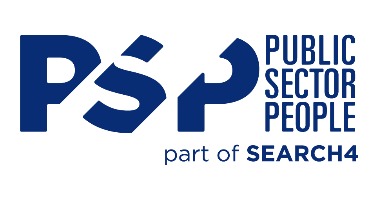The Common Mistakes Made When Job Searching- And What You Can Do To Fix Them

By Emily Harris
Looking for work but failing to find jobs that are relevant to your skillset? Or struggling to get a response from all the applications you’ve sent out? Sometimes the process of finding a job- or the next opportunity- can feel like a job in and of itself. While preparing resumes and sending off applications isn't always a straightforward process, it’s important not to become disheartened, especially if you’re yet to see results from your efforts.
For those currently looking or about to embark on their job search, we’ve listed the common mistakes people can make in the early recruitment stage and have provided some tips on how to make your search more effective, get unstuck and build your confidence at the same time.
1. You’re Limiting The Means In Which You Apply For Roles
Many of us have been trained to submit online job applications and then wait to hear for prospective employers to contact us. While online job searches are one of the most popular and convenient ways to learn about new opportunities within the public sector, they’re definitely not the only way to learn about new and upcoming roles.
Over time, and especially once you become more established in your career, you can learn about new opportunities through referrals, networking and important contacts. If you feel you aren’t getting much traction through your online searches and especially if you work in a relationship-based role marketing or communications, it might be worth reaching out to your network, or consider attending networking events to ensure others in your industry know you’re either actively looking or interested in new opportunities. Professional platforms like Linkedin or Australian Local Government Association, are a great place to start when looking for networking opportunities as they’ll provide a ready-made network of like-minded professionals you can reach out to.
Alternately, if you have an ideal job in mind or a specific organisation you want to work for, you could choose the most direct approach and contact the organisation directly. While the company in question may not have any positions currently available, if you tailor your communication to them effectively, you’ll suddenly be on their radar, and might be front of mind for them when faced with future job opportunities.
Finally, if you haven’t already, reaching out to a recruiter within your industry can be a beneficial exercise. Not only can recruiters keep you in the loop with relevant job opportunities and industry news thanks to their extensive contact list, they can provide advice regarding your resume and future job interviews, as they have an accurate idea of what organisations within the public sector for example, are looking for in their ideal candidates.
2. You Don’t Know Your Value
When starting your job search it can be hard to determine your worth, especially if you’ve been in the one organisation or role for a long time. How do you determine what salary bracket you should aim for or what jobs or experience level you’re qualified for? Many job-seekers can aim too low or be too modest about their talents. Or perhaps due to external factors weighing on them, consider roles that they wouldn’t normally.
To gain a better idea of both your salary and job potential, both HR and career consultants recommend reaching out to a third party to determine what your skills can command in the talent marketplace. Using compensation platforms like PayScale and Salary.com can be a great way to determine what salary bracket you can use as a benchmark when looking for potential jobs or in interviews. It can also provide insight into whether your current salary is above or below industry standard.
Reaching out to recruiters within your particular industry can also be worthwhile in terms of salary and general career advice as their relationships with a number of diverse organisations gives them a unique perspective on competitive salary rates and the current opportunities available. They’ll be able to help you identify realistic job and salary expectations based on your experience, location and overall career goals.
It’s also important to remember – even amidst a very competitive job market- that every job search provides an opportunity to set a new course and reinvent yourself, especially if you’ve experienced dissatisfaction in your current or previous role. Recruiters and prospective employers are looking for the best candidates to fill their roles so in order to grab their attention, you need to be able to sell yourself. While this doesn’t mean lying or embellishing your knowledge or experience, you shouldn’t be afraid of ‘toning down’ your achievements. It might be worthwhile to also consider your soft and transferable skills when writing your resume and looking for potential roles. Transferrable skills refer to the qualities, behaviours and attributes that are considered key competencies across a number of industries, including interpersonal skills, teamwork, time management and productivity. Factoring these skills into your job search will help open yourself up to more opportunities.
3. You Haven’t Tailored Your Qualifications & Resume To The Job
When you’re applying for jobs, it can be tempting to apply to as many advertisements as possible (within your relative field) to increase your chances of getting a response or call back from potential employers. However, this isn’t necessarily the most efficient use of your time. Organisations hiring are inundated with hundreds of resumes and only have a finite amount of time to scan each one; if your resume doesn’t include the key skills or attributes specifically mentioned in the job advertised or their key selection criteria, it will automatically be dismissed. Consequently, the generic resume you’ve fired off to every job advertisement with ‘finance’ in the title isn’t going to register with even half of the HR managers you were hoping for. To ensure you’re catering to job requirements, it’s a good idea to give your resume a onceover after looking at each job advertisement. Ask yourself the following questions: does my work experience and knowledge correspond with what has been highlighted in the job description? For example, if you’re applying for a financial administrator role, your part-time experience working at your local chicken shop isn’t necessary to include, but your experience with accounting software is. Does the job advertisement mention anything about company culture and is this reflected in my own resume? For example, if a job advertisement states they are looking for a ‘team player who likes to collaborate’ but your resume mentions that you like to be ‘self-directed and independent’ in your work, the role might not be a good fit.
Job advertisements will also have a number of ‘keywords’ scattered through their key capabilities and responsibility sections- words like ‘HSEQ’ or ‘compliance’ for example. Being able to match these keywords within your own resume (where applicable) will demonstrate to HR professionals and recruiters that you’ve taken the time to digest what the role will entail. It will also help to visually convey your suitability to the role in question.
Ultimately, adapting your resume for each individual job you apply for might seem like a time-consuming exercise in the short term, but it will ultimately yield more effective results in the long term.
4. You Haven’t Put Enough Thought Into Your Cover Letter
Some consider submitting a cover letter as an optional part of the application process, but the majority of career and business consultants advise job seekers to include one unless specifically told otherwise. HOWEVER, if you are going to submit a cover letter, it must be done properly.
Like tailoring a resume, each cover letter should be customised to suit the particular role and organisation you’re sending it to. Instead of starting the letter with a generic ‘Dear Sir/Madam’ ‘Or To Whom it May Concern’, being able to use the organisation’s name or better yet, research who is in charge of the hiring process and address them personally, will not only grab their attention but demonstrate a level of effort and dedication that will stand out against other cover letters.
Similarly, the body of your cover letter should be different for every job you apply for. Not only will this prevent you from making embarrassing mistakes (like referring to the wrong company) but it will help you to focus on that specific role and the ways in which you are compatible.
Finally, some people can get confused on the purpose of a cover letter and use it to repeat all the points they’ve made in their resume. As previously mentioned, those reading your applications only have a finite amount of time and won’t look favourably on having to read the same information twice. Instead, think of your cover letter as an executive summary; summarising only the most important points of your resume and relating it back to the specific organisation and key selection criteria. Mentioning things like your familiarity with the organisation or government agency's values and mission statement and how you align with these core values, not only demonstrates your knowledge on the organisation but further highlights your compatibility.
Job searching is a time-consuming process and at times overwhelming and fatiguing, so ultimately the biggest mistake you can make is giving up on your search! Be patient and go easy on yourself and if you feel like you’re struggling to cut through, it may be worthwhile considering the tips above.
Alternately Public Sector People specialise in helping candidates in the next step in their career within the public sector and know what government agency's are looking for when hiring. If you’re wanting to seek advice on how to ‘cut through’ within the current job market, reach out to our team of consultants at: info@publicsectorpeople.com.au
Ready to find your next role? Start the search today!








Job Sectors
All content copyrighted | Privacy Policy | Cookie Policy | T&Cs | Powered with 💙 by Shazamme




